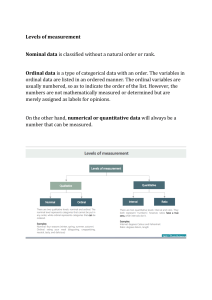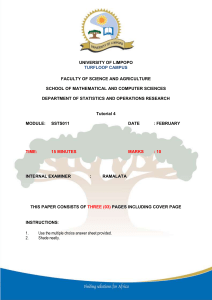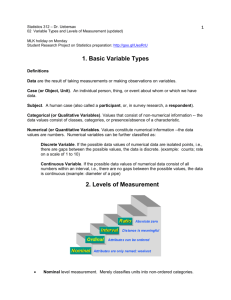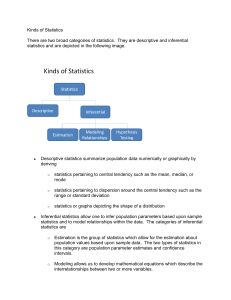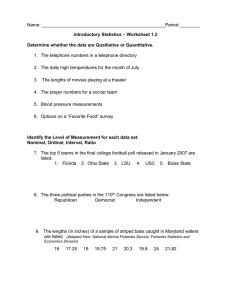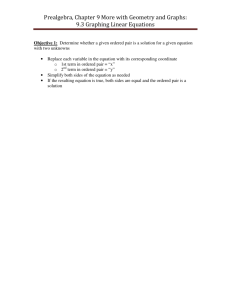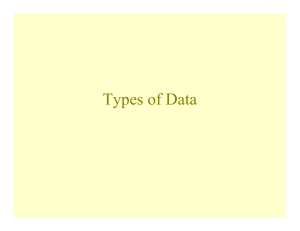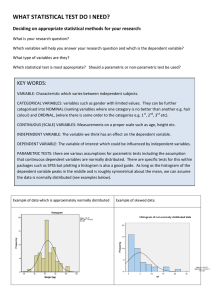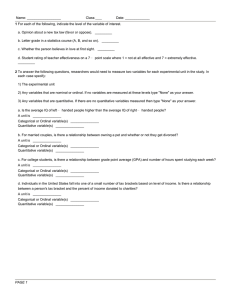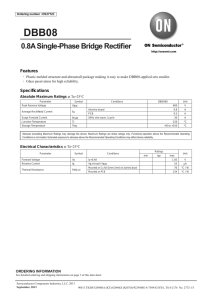Ch 1 Key Terms (continued) Proportion Example 2.
advertisement
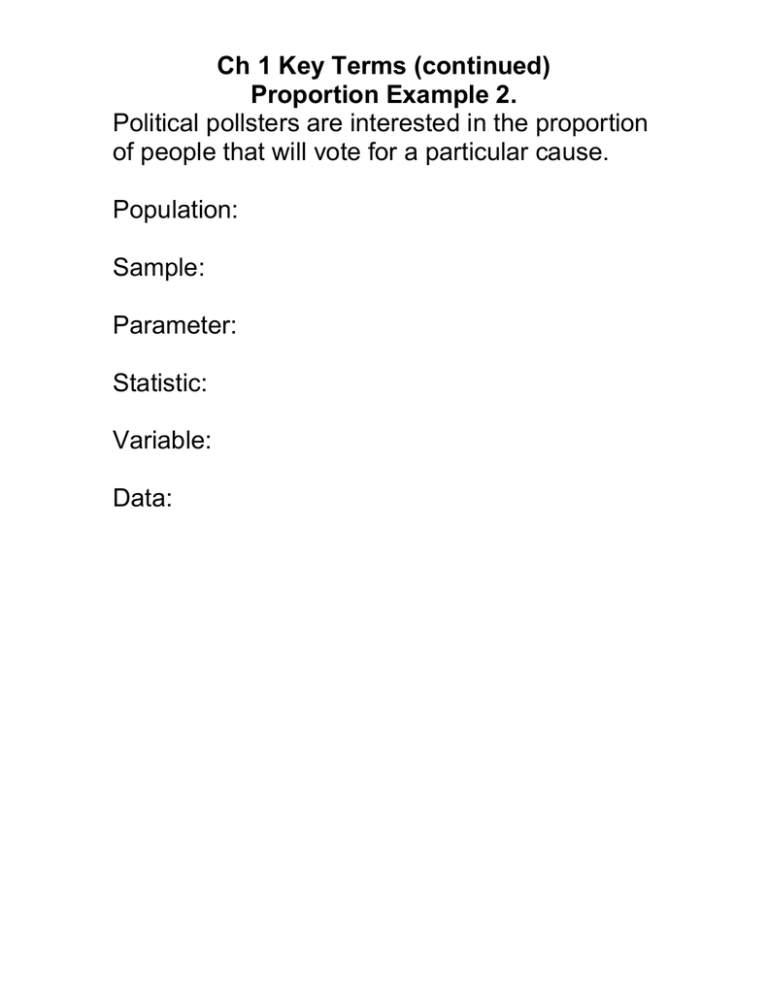
Ch 1 Key Terms (continued) Proportion Example 2. Political pollsters are interested in the proportion of people that will vote for a particular cause. Population: Sample: Parameter: Statistic: Variable: Data: Types of Data: ____________________ Data ____________________ Data _____________ _____________ Determine the type of data: 1. The number of pairs of shoes you own 2. The type of car you drive 3. Where you go on vacation 4. The distance from your house to the nearest grocery store 5. The number of classes you take per school year 6. The tuition for your classes 7. The type of calculator you use 8. Movie ratings 9. Political party preferences 10. The weight of sumo wrestlers 11. The amount of money won playing poker 12. The number of correct answers on a quiz 13. People’s attitudes toward the government 14. IQ scores Levels of Measurement How data is measured is called its level of measurement: Nominal Scale: This is categorical data without any kind of ordering implied. Ordinal Scale: This is categorical data that can be ordered or for which ordering is implied. Interval Scale: This is numerical data that can be ordered but the data has no starting point. Differences can be measured, but ratios have no meaning. Ratio Scale: This is numerical data that can be ordered and has a 0 value. Differences as well as ratios of values make sense. What type of measure scale is being used? Nominal, ordinal, interval or ratio? 1. Movie Ratings ( etc.) 2. Temperatures in June in San Jose 3. The colors of T-shirts for sale at Old Navy 4. The wages (in dollars per hour) for a part-time job 5. Where you go on vacation 6. The distance in miles from home to work 7. Common letter grades: A, B, C, D, and F Relative Frequency Tables We are interested in the number of days per week that a De Anza students works. Data Frequency Relative Cumulative Frequency Rel Freq 0 1 2 3 4 5 6 7 Total What percent work: 0 days per week? 1 to 3 days per week? Less than 5 days per week? At least 5 days per week?
